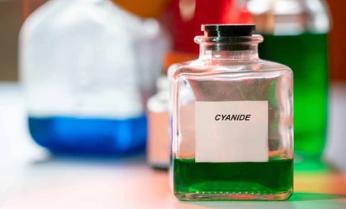Cyanides are a class of highly toxic compounds with cyano (CN-), mainly referring to cyanates and hydrocyanic acid. They can enter the body through the respiratory and digestive tracts and the skin. Cyanide in wine is mainly produced by the hydrolysis of cyanogenic glycosides ligands in raw materials (such as cassava, substitutes, beans, and other fruit kernels or mixed with some wild plants) during the fermentation process. From a toxicological point of view, cyanide is an irreversible inhibitor of cytochrome C oxidase, which inhibits cellular respiration and is thus considered a highly toxic compound that is a serious food safety hazard. Because of its extreme toxicity, cyanide requires to be detected at low mass concentrations (ng/mL).

Cyanide is a toxic substance, and tiny amounts can cause poisoning or even death in humans or animals. Therefore, cyanide is a significant safety indicator for wine. As one of the world's leading providers of wine hygiene testing services, Lifeasible offers professional cyanide testing solutions for wine, including sodium cyanide (NaCN), potassium cyanide (KCN), and hydrocyanic acid (HCN). Our laboratory will perform tests strictly following international standards and provide reliable analytical results.
We offer proven standard methods and other methods to test cyanide in wine for our customers to choose from. Our solutions meet the need for fast, simple, and accurate determination of cyanide in large quantities of wine.
Our solutions for cyanide testing in wine have excellent reproducibility and accuracy for different types of wines, and the results fully comply with the standards. We aim to meet the requirements for rapid detection of cyanide in various wines. Some of our methods are easy to use, fast and efficient, with high accuracy, making them a reliable choice. If you are interested in our solutions, please contact us for technical consultation and quotation.
Lifeasible has established a one-stop service platform for plants. In addition to obtaining customized solutions for plant genetic engineering, customers can also conduct follow-up analysis and research on plants through our analysis platform. The analytical services we provide include but are not limited to the following:
July 13, 2024